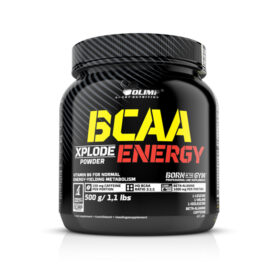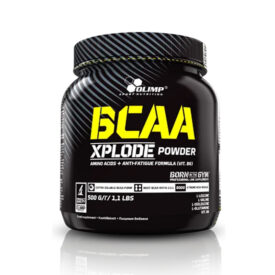Apple Cider Vinegar is a very versatile product, it has many uses from weight loss all the way through to having a positive effect on your digestive system. But what is it really? Well, we’re about to find out in this blog post.

How is it made?
According to the US Department of Agriculture, Apple Cider Vinegar is around 94% water with 1% carbohydrates and not containing any amount of fats or proteins. Per 100ml, it contains around 22 calories with just a tiny bit of micronutrients.
When making it commercially, regular Apples are brought onto the company’s processing belt, where they are then crushed & pressed and the juice has been separated. The fermentation process usually begins just after the juice has been stored in a tank underwater. Oxygen is then fed through into the container to achieve its alcoholic fermentation via the bacterial strain, acetobacter. The resulting ethanol produces acetic acid and vinegar which are brewed together to make Apple Cider Vinegar.
Why do people use it?
A journal entry in the PMC has shown that using Apple Cider Vinegar can help kill unwanted pathogens, including harmful bacteria. It can also inhibit bacteria such as E. Coli from growing in foods and stop it from spoiling it.
According to healthline.com, studies also show that vinegar can help you lose weight. Consuming Apple Cider Vinegar doesn’t have a negative calorie count (food that takes more calories to burn than its actual calorie count), but it does kind-of restrict your calorie intake. Upon further research, it has been shown that a group of people ended up eating 200-275 fewer calories per day when they have had Apple Cider Vinegar with a high-carb meal due to feeling fuller by the vinegar.
Across the world, heart disease is one of the world’s most common causes of premature death in humans. There have been studies on animals that show that apple cider vinegar can lower cholesterol and triglyceride in the body – which are both common contributors to heart disease. It has also been shown to reduce blood pressure in rats, another major contributor to heart and kidney problems.
It is also thought that using Apple Cider Vinegar can counteract the pH levels in your stomach acid.
How Do I Use It?
Typically, people use 1-2 tablespoons of Apple Cider Vinegar to mix in with their food, but people also like to dilute it with a glass of water and use from as little as 1 teaspoon, all the way up to 2 tablespoons. Apple Cider Vinegar is typically found in things such as salad dressing and mayonnaise. It is recommended that you use raw, unfiltered vinegar along with the mother (which contains the acetic acid which we covered in the first paragraph).

Are there any side effects?
Whilst consuming Apple Cider Vinegar has many health benefits such as weight loss, lower cholesterol and lower blood sugar – it also has some side effects you need to be a little bit wary of.
Apple Cider can sometimes delay the rate of which your food leaves the stomach, which can bring on gastroparesis and make controlling your blood sugar more difficult for people with diabetes. Whilst Apple Cider Vinegar can reduce your appetite, the taste isn’t raved about and can sometimes bring on feelings of nausea when you consume too much. Tooth enamel is also at risk, usually because of a sudden onslaught of vinegar you will consume so suddenly over an extended period. The erosion of tooth enamel can also cause decay in your teeth.
In children, there have been several cases where it has burned their throats, but it is not recommended that children consume apple cider vinegar – straight or diluted. It is also fully recommended that you take it in liquid form. Whilst capsules are available, one woman complained of throat burns after a tablet got stuck in her oesophagus. You should also not treat it for anything other than consumption as reports have occurred of skin burns when using Apple Cider Vinegar to treat infections and moles.
Some medications may interact with apple cider vinegar, including insulin, digoxin and certain diuretics.
If you were to experience any of the above side effects, consult medical advice immediately.
Apple Cider Vinegars @ SS Healthfoods.
LIQUIDS
Raw Health Organic Apple Cider Vinegar – 500ml (£2.99)
.jpg)
At Raw Health they use organic unfiltered, pressed apple juice to make their raw apple cider vinegar. Never heated or pasteurised, this living enzyme-rich vinegar contains the nutritious vinegar ‘mother’
Bragg Organic Apple Cider Vinegar 946ml (£9.49).

Bragg Organic Apple Cider Vinegar is made from delicious, healthy, organically grown apples and is the wholesome way to add delicious flavour to most foods. Unfiltered, unheated and unpasteurized, Bragg Apple Cider Vinegar has just 5% acidity and is full of zesty natural goodness.
TABLETS/CAPSULES
Swanson Double Strength Apple Cider Vinegar 30 Caps (£1.99)
_1.jpg)
Swanson’s Apple Cider Vinegar is double the usual strength, this special formula ensures that the body’s system-flushing qualities are the best it can be! With natural Apple Cider Vinegar packed into 30 tablets, it’s perfect for those who are on the go.
Swanson Apple Cider Vinegar High Potency 1.25g 180 Caps (£10.95)
.jpg)
Looking for convenient apple cider vinegar supplements? Swanson’s Ultra High Potency Apple Cider Vinegar pills take this classic diet aid into the modern era with the most potent version ever. Each capsule supplies 625 mg of apple cider vinegar to help you feel your best while you meet your weight goals. But you don’t have to be a dieter to benefit from apple cider vinegar and its unique system-flushing capabilities.
Swanson Apple Cider Vinegar Double Strength 200mg 120 Tablets (£5.49)
.jpg)
Swanson Diet Double Strength Apple Cider Vinegar is an incomparably potent form of apple cider vinegar pills, distilled into these handy capsules meaning you don’t even have to worry about drinking vinegar, you can just get on with your day feeling cleansed, lean and ready for the day.




